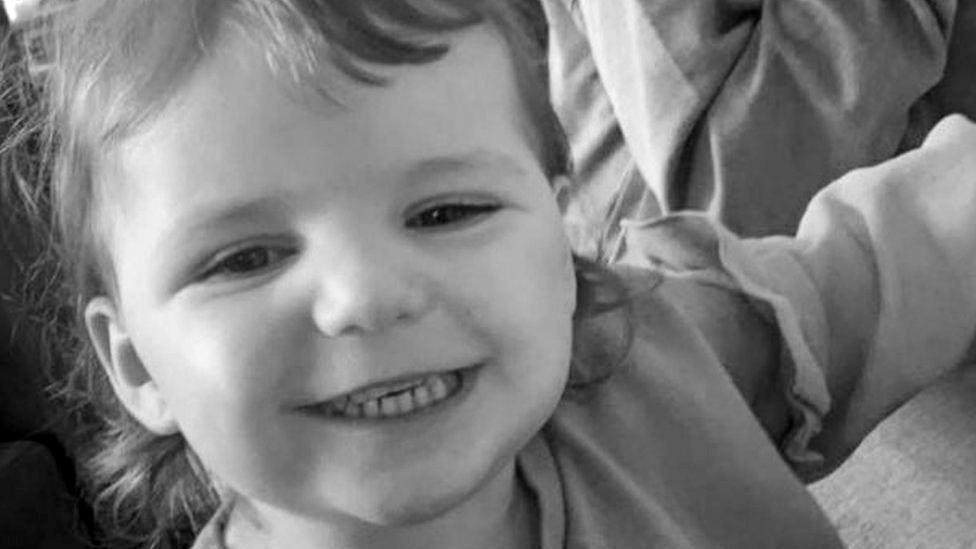Woman who let daughter die loses sentence appeal

Maya Chappell from severe brain damage after she was violently shaken
- Published
A woman jailed for allowing her daughter to be killed at the hands of her partner has lost an appeal to reduce her sentence.
Dana Carr, 24, was convicted at Teesside Crown Court in November 2023 of child cruelty and allowing the death of two-year-old Maya Chappell in Shotton Colliery, County Durham.
She was jailed for nine years but appealed the sentence at the Court of Appeal.
Lord Justice Singh said the original sentence could be "described as severe, but was not wrong in principle or manifestly excessive".
Maya suffered severe brain damage when she was violently shaken by Michael Daymond after he learnt his Universal Credit had been stopped while he was being threatened over drug debts.
She was taken to the Royal Victoria Infirmary in Newcastle, but died two days later.
Daymond was sentenced to life imprisonment with a minimum of 20 years for her murder.

Dana Carr did not acknowledge the abuse her daughter received from her partner
During the trial, the jury heard the couple had only been dating for a matter of weeks when Daymond moved into Carr's home.
Shortly after a significant number of bruises began to appear on Maya's body.
Daymond would then message Carr with a serious of lies to cover up his behaviour but despite being alerted to the situation, Carr did nothing to stop the abuse.
'Very damaged woman'
Representing Carr at the appeal hearing in London, Toby Hedworth KC, described his client as a "very damaged young woman" who "craved affection" due to her background.
He said the mitigation should have led to a reduction in the sentence rather than a "significant uplift".
"The balance has unfortunately gone wrong in this case and there should be a substantial downward adjustment to the sentence that was imposed," he said.
But three Court of Appeal judges dismissed the appeal and Lord Justice Singh said the sentence "reflected the seriousness of the appellant's offending and this court cannot properly interfere with it."
Follow BBC Tees on X,, external Facebook, external, Nextdoor and Instagram, external.
Get in touch
Do you have a story suggestion for BBC Tees?
Related topics
- Published10 November 2023

- Published24 October 2023
